Audi Q5 vs BMW 3 Series Touring – Which car suits you better?
Everyday use, family trips or long-distance drives – here’s where the differences show.
Discover whether Audi Q5 or BMW 3 Series Touring fits your lifestyle better.
Costs and Efficiency:
When it comes to price and running costs, the biggest differences usually appear. This is often where you see which car fits your budget better in the long run.
BMW 3 Series Touring has a barely noticeable advantage in terms of price – it starts at 41100 £, while the Audi Q5 costs 44800 £. That’s a price difference of around 3771 £.
Fuel consumption also shows a difference: BMW 3 Series Touring manages with 0.90 L and is therefore clearly more efficient than the Audi Q5 with 2.50 L. The difference is about 1.60 L per 100 km.
As for range, the Audi Q5 performs slight better – achieving up to 100 km, about 3 km more than the BMW 3 Series Touring.
Engine and Performance:
Power, torque and acceleration are the classic benchmarks for car enthusiasts – and here, some clear differences start to show.
When it comes to engine power, the BMW 3 Series Touring has a clearly perceptible edge – offering 550 HP compared to 367 HP. That’s roughly 183 HP more horsepower.
In acceleration from 0 to 100 km/h, the BMW 3 Series Touring is evident quicker – completing the sprint in 3.50 s, while the Audi Q5 takes 4.50 s. That’s about 1 s faster.
In terms of top speed, the BMW 3 Series Touring performs to a small extent better – reaching 300 km/h, while the Audi Q5 tops out at 250 km/h. The difference is around 50 km/h.
There’s also a difference in torque: BMW 3 Series Touring pulls noticeable stronger with 700 Nm compared to 550 Nm. That’s about 150 Nm difference.
Space and Everyday Use:
Whether family car or daily driver – which one offers more room, flexibility and comfort?
Both vehicles offer seating for 5 people.
In curb weight, BMW 3 Series Touring is slightly lighter – 1650 kg compared to 1910 kg. The difference is around 260 kg.
In terms of boot space, the Audi Q5 offers slight more room – 520 L compared to 500 L. That’s a difference of about 20 L.
In maximum load capacity, the BMW 3 Series Touring performs minimal better – up to 1510 L, which is about 37 L more than the Audi Q5.
When it comes to payload, Audi Q5 minimal takes the win – 565 kg compared to 520 kg. That’s a difference of about 45 kg.
Who comes out on top?
Overall, the BMW 3 Series Touring shows itself to be is largely superior and secures the title of DriveDuel Champion.
It convinces with the more balanced overall package and proves to be the more versatile choice for everyday use.
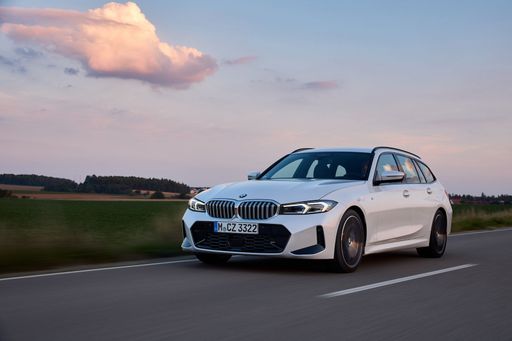
BMW 3 Series Touring
Audi Q5
The Audi Q5 exudes a perfect blend of luxury and performance, making it a standout in the competitive SUV market. Its elegant design is complemented by a spacious and meticulously crafted interior, providing both comfort and functionality for drivers and passengers alike. With advanced technology and a range of powerful engines, the Q5 effortlessly combines driving pleasure with practicality for everyday use.
details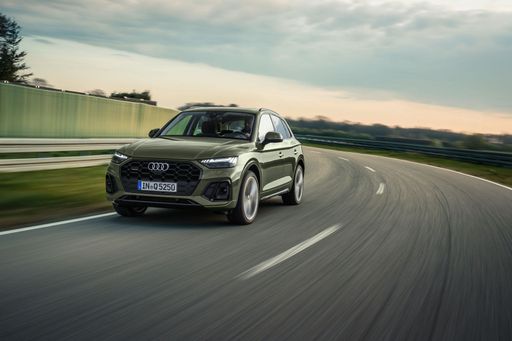 @ audi-mediacenter.com
@ audi-mediacenter.com
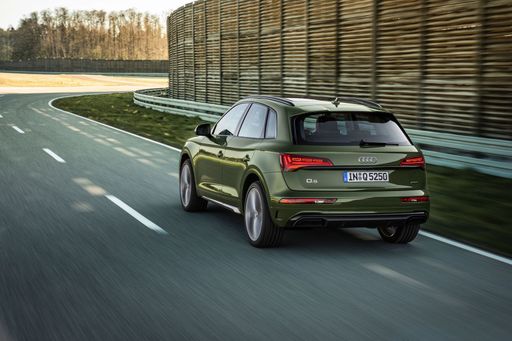 @ audi-mediacenter.com
@ audi-mediacenter.com
 @ audi-mediacenter.com
@ audi-mediacenter.com
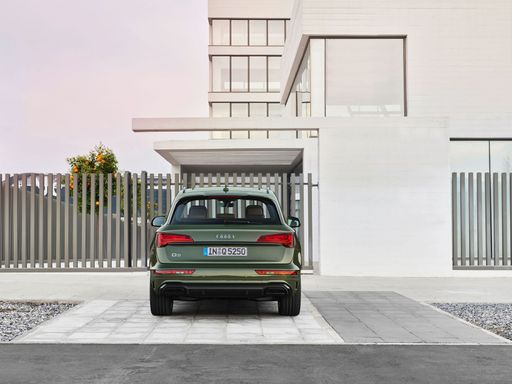 @ audi-mediacenter.com
@ audi-mediacenter.com
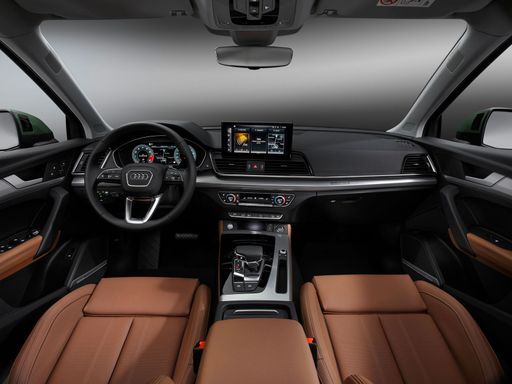 @ audi-mediacenter.com
@ audi-mediacenter.com
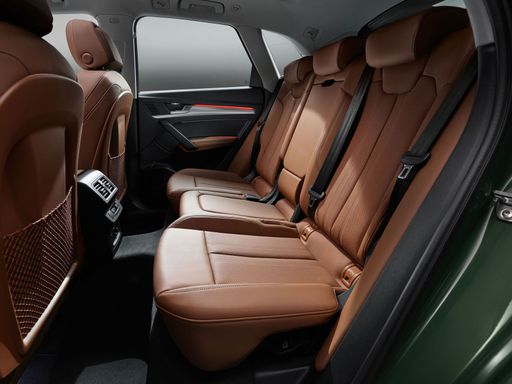 @ audi-mediacenter.com
@ audi-mediacenter.com
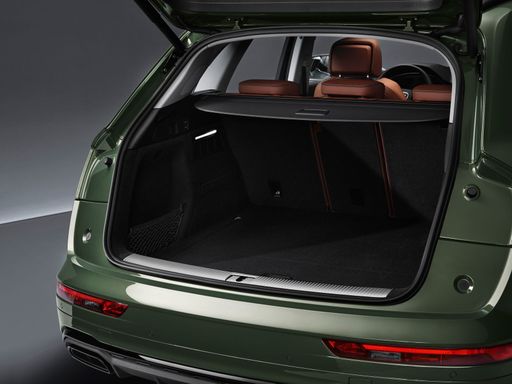 @ audi-mediacenter.com
@ audi-mediacenter.com
BMW 3 Series Touring
The BMW 3 Series Touring combines dynamic performance with practical versatility, making it an ideal choice for both spirited drives and everyday use. Its elegant design is complemented by a spacious interior, offering ample room for passengers and luggage alike. Cutting-edge technology enhances the driving experience, ensuring comfort and convenience on every journey.
details @ press.bmwgroup.com
@ press.bmwgroup.com
 @ press.bmwgroup.com
@ press.bmwgroup.com
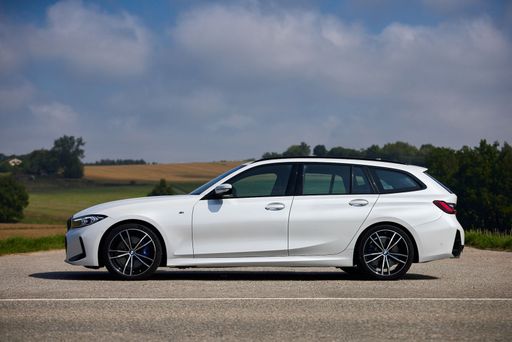 @ press.bmwgroup.com
@ press.bmwgroup.com
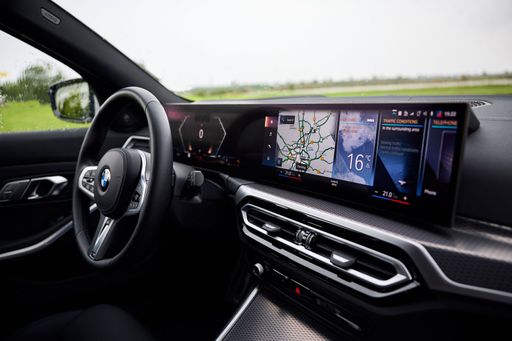 @ press.bmwgroup.com
@ press.bmwgroup.com
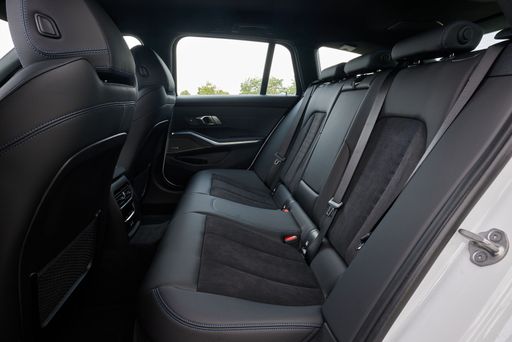 @ press.bmwgroup.com
@ press.bmwgroup.com

|

|
|
|
|
Costs and Consumption |
|
|---|---|
|
Price
44800 - 78900 £
|
Price
41100 - 131100 £
|
|
Consumption L/100km
2.5 - 8.3 L
|
Consumption L/100km
0.9 - 10.5 L
|
|
Consumption kWh/100km
-
|
Consumption kWh/100km
-
|
|
Electric Range
92 - 100 km
|
Electric Range
91 - 97 km
|
|
Battery Capacity
20.70 kWh
|
Battery Capacity
19.50 kWh
|
|
co2
56 - 189 g/km
|
co2
20 - 238 g/km
|
|
Fuel tank capacity
55 - 65 L
|
Fuel tank capacity
40 - 59 L
|
Dimensions and Body |
|
|---|---|
|
Body Type
SUV
|
Body Type
Estate
|
|
Seats
5
|
Seats
5
|
|
Doors
5
|
Doors
5
|
|
Curb weight
1910 - 2245 kg
|
Curb weight
1650 - 2025 kg
|
|
Trunk capacity
433 - 520 L
|
Trunk capacity
410 - 500 L
|
|
Length
4717 mm
|
Length
4713 - 4801 mm
|
|
Width
1900 mm
|
Width
1827 - 1918 mm
|
|
Height
1647 - 1656 mm
|
Height
1440 - 1448 mm
|
|
Max trunk capacity
1300 - 1473 L
|
Max trunk capacity
1420 - 1510 L
|
|
Payload
490 - 565 kg
|
Payload
405 - 520 kg
|
Engine and Performance |
|
|---|---|
|
Engine Type
Plugin Hybrid, Petrol MHEV, Diesel MHEV
|
Engine Type
Diesel MHEV, Plugin Hybrid, Petrol, Petrol MHEV
|
|
Transmission
Automatic
|
Transmission
Automatic
|
|
Transmission Detail
Dual-Clutch Automatic
|
Transmission Detail
Automatic Gearbox
|
|
Drive Type
All-Wheel Drive, Front-Wheel Drive
|
Drive Type
Rear-Wheel Drive, All-Wheel Drive
|
|
Power HP
204 - 367 HP
|
Power HP
150 - 550 HP
|
|
Acceleration 0-100km/h
4.5 - 8.6 s
|
Acceleration 0-100km/h
3.5 - 8.8 s
|
|
Max Speed
226 - 250 km/h
|
Max Speed
213 - 300 km/h
|
|
Torque
340 - 550 Nm
|
Torque
250 - 700 Nm
|
|
Number of Cylinders
4 - 6
|
Number of Cylinders
4 - 6
|
|
Power kW
150 - 270 kW
|
Power kW
110 - 405 kW
|
|
Engine capacity
1968 - 2995 cm3
|
Engine capacity
1995 - 2998 cm3
|
General |
|
|---|---|
|
Model Year
2025
|
Model Year
2024 - 2025
|
|
CO2 Efficiency Class
B, E, F, G
|
CO2 Efficiency Class
D, E, F, B, G
|
|
Brand
Audi
|
Brand
BMW
|
What drivetrain options does the Audi Q5 have?
The Audi Q5 is available as All-Wheel Drive or Front-Wheel Drive.
The prices and data displayed are estimates based on German list prices and may vary by country. This information is not legally binding.
